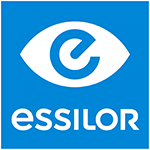Coronavirus can be transmitted through your eyes
News Title
Coronavirus can be transmitted through your eyes
Can you contract coronavirus through your eyes?
There are still unanswered questions regarding the novel coronavirus, but something almost certainly known is that virus transmission through the eyes is likely.
According to the World Health Organization (WHO), the primary method of coronavirus spread is through respiratory droplets of saliva or nasal discharge expelled when an infected person coughs or sneezes.
These droplets are most frequently transferred when you are less than 1 metre away from the person affected. If these droplets are breathed in and enter the lungs, COVID-19 infection can occur.
However, WHO also stresses the importance of hand-washing and not touching your face, given the possible transmission of viruses from the hands to the mouth, noses or eyes.
When a contaminated surface, such as an unwashed hand, comes in contact with the eye, coronaviruses can transfer onto the surface of the eye. Here, it’s believed the virus can enter the body through the conjunctiva, the thin membrane that covers the front of the eye and the inner eyelids.
Virus transmission through the eyes may not be this coronavirus’ primary method of spread, but even smaller methods of spread can be something to remain mindful of.
Evidence of eye transmission
The medical journal JAMA Ophthalmology published a small study in March 2020 that suggested eye transmission of novel coronavirus.
Focused on 38 COVID-19 patients in China, the study showed the novel coronavirus to have traits in common with the SARS virus, another member of the coronavirus family. An increased risk of contracting the virus without proper eye protection was one of these shared traits. Hence, eye transmission of the COVID-19 virus was strongly suspected.
Another study, also published in March 2020 by the journal Ophthalmology, found encouraging news regarding optical spread. Researchers in Singapore found no evidence of the coronavirus in the tear samples of 17 COVID-19 patients.
This may be a step in the right direction, but the group continues to encourage eye protection, in addition to minding hand, nose and mouth protection. Everything works together to slow the spread of this coronavirus.
Another way coronavirus can affect your eyes: Increasing evidence also suggests that 1-3% of COVID-19 patients can present with conjunctivitis.
How to slow the spread of coronavirus
Based on what we currently know about the novel coronavirus, here are some steps you can take to slow the spread where you live:
- Wash your hands thoroughly and often, with soap and water. An alcohol-based sanitizer may be used as a substitute, but soap and water are preferable.
- Avoid touching your eyes, nose and mouth as much as possible.
- Do not come into physical contact with people who are infected or may be infected with the virus, if possible.
- When in public, try to maintain a distance of 1 metre or further from other people.
- When you cough or sneeze, cover your mouth and nose with a tissue and dispose of the tissue into a covered bin. If you don’t have a tissue, use the inside of your bent elbow to avoid sending droplets into the air.
Glasses may offer some protection
Even the simple act of wearing everyday eyeglasses or sunglasses offers some protection from airborne viruses, according to the American Academy of Ophthalmology. However, germs can still enter through the exposed sides of the frames.
Additionally, the ophthalmology group recommends wearing glasses over contact lenses during the coronavirus pandemic. In addition to the protection offered by glasses, eyeglass-wearers tend to touch their eyes far less frequently than contact lens-wearers.
Face masks reduce risk but don’t protect your eyes
Many health care professionals are also recommending the use of non-medical face masks for use in daily activities. While masks were previously discouraged for seemingly healthy people, they are now being encouraged due to the potential asymptomatic spread of this coronavirus.
However, they are requesting medical-grade masks be conserved for health care workers.

